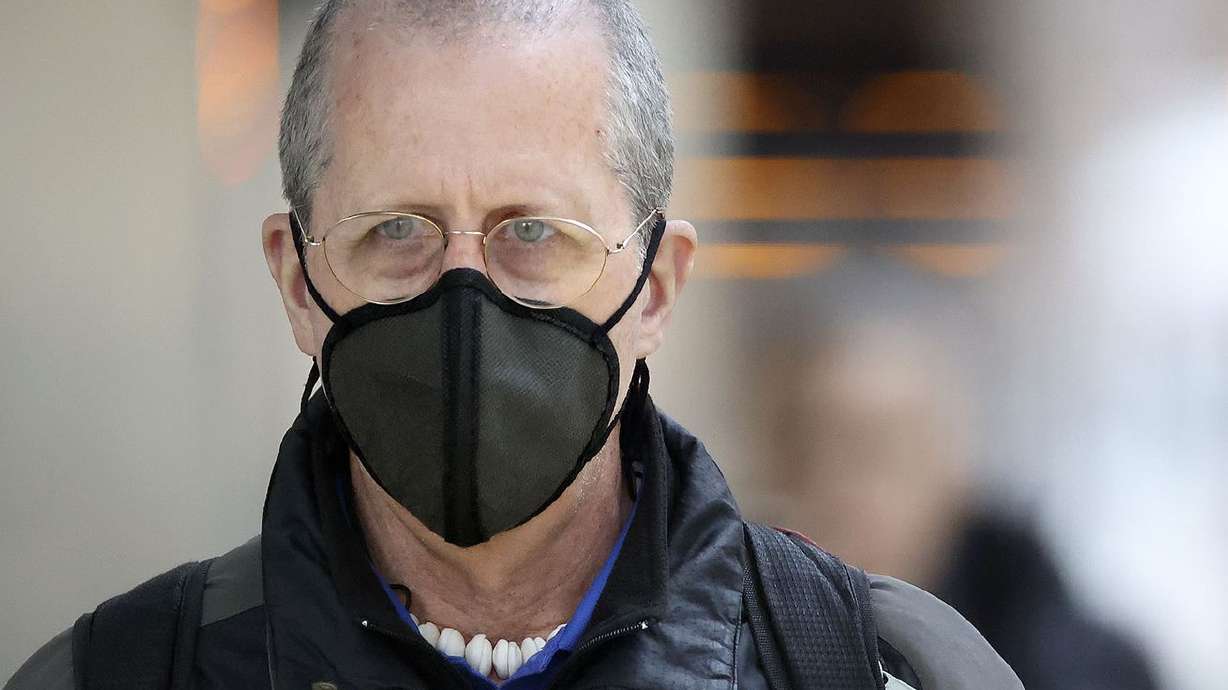Estimated read time: 3-4 minutes
This archived news story is available only for your personal, non-commercial use. Information in the story may be outdated or superseded by additional information. Reading or replaying the story in its archived form does not constitute a republication of the story.
SALT LAKE CITY — The Utah Senate has passed a joint resolution to overturn Salt Lake and Summit counties' mask mandates.
The resolution will now move to the House for consideration before it becomes final.
After a back-and-forth between Gov. Spencer Cox and Salt Lake County Mayor Jenny Wilson about mask requirements at the state Capitol, the lawmakers are wasting no time in pushing legislation that would exempt state facilities from local health orders.
Dr. Angela Dunn, head of the Salt Lake County Health Department, issued a 30-day public health order on Friday, Jan. 7, that made "well-fitting" masks mandatory indoors. Cox later directed that the order not apply to state facilities — allowing the Utah Legislature to convene this week with no mask requirement in place.
"While I appreciate the governor's authority on many levels, he does not have the authority to exempt state buildings and employees from the Salt Lake County mask requirement and is defying a public health order of constraint," Wilson said, in response to the governor's order.
The Legislature has authority to overturn local health orders under SB195, and Senate President Stuart Adams said they could vote as soon as Tuesday afternoon on a resolution that would terminate the county mask mandate.
Adams pushed back on the notion that the resolution could be seen as the Legislature overreaching on local control, saying "it's the process of government."
Sen. Dan McCay, R-Riverton, who is sponsoring the resolution, said that he doesn't think mask mandates are effective — especially considering the increased transmissibility of the omicron variant.
It's like "waving your arms out the window of a car trying to slow it down," he said.
SJR3 would still need to pass through the House of Representatives. Because it's a joint resolution, it would not need the governor's signature to become law, and the governor would not have the power to veto it.
Other lawmakers are also lining up legislation to clamp down on local COVID-19 restrictions and further limit the power of mayors to use their executive power to respond to the COVID-19 pandemic.
Rep. Ryan Wilcox, R-Ogden, and Senate Majority Assistant Whip Kirk Cullimore, R-Sandy, are sponsoring HB182, which excludes state facilities from the jurisdiction of local health departments and restricts chief executive officers of municipalities from exercising emergency powers or declaring a state of emergency during a pandemic.
The bill takes aim at Salt Lake City Mayor Erin Mendenhall, who has used emergency powers to issue citywide mandates of her own. She wrote to Dunn requesting the public health order earlier this month, saying "It is our shared responsibility as leaders to protect every life we can."
Mendenhall issued a mask mandate for schools in Salt Lake City last August, which she said was legal because although state law approved by the Utah Legislature last year limited authority for health officials and the governor when it comes to mask mandates, the law does not apply to city mayors in the same way.
HB182 seeks to close that loophole and would effectively tie Mendenhall's hands when it comes to future mask mandates.
We are not surprised by H.B. 182 but urge the Legislature to promote good policy over politics when it comes to our residents' health. This includes empowering local health departments to enact protective measures based on science and their expertise.https://t.co/CFMJYtDXt0
— Mayor Erin Mendenhall (@slcmayor) January 18, 2022
In a tweet posted on Tuesday morning, Mendenhall said she was not surprised by what she calls a piece of "reactive legislation," and blames a "toxic political climate" for the pushback.
"Rather than stripping local authority, we request the Legislature acknowledge that municipal mayors have direct expertise related to any kind of emergency in their local communities, and those mayors' authority should not be usurped for political retribution," her tweet read.
Adams said the bill wasn't designed as retribution against Mendenhall, but said he thinks it's "questionable that cities have the expertise ... to rule on pandemics" because they lack their own health departments.









